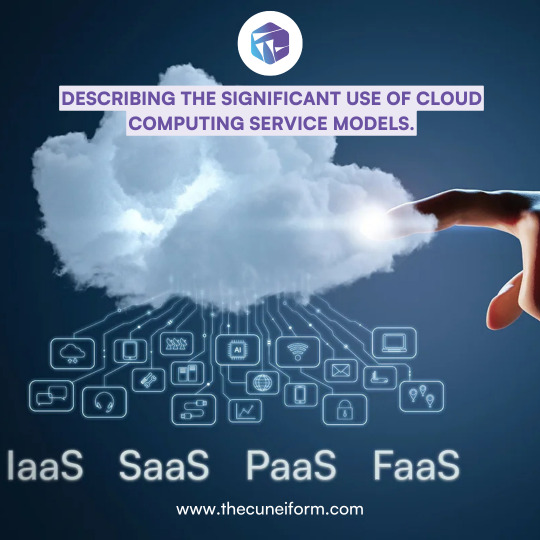#Cloud infrastructure services
Explore tagged Tumblr posts
Text

Unlocking efficiency, scalability, and security across sectors through optimized cloud infrastructure management solutions.
#cloud infrastructure setup company#Cloud Infrastructure Setup#cloud infrastructure services#cloud infrastructure management services#cloud infrastructure entitlement management#cloud infrastructure management in cloud computing#cloud management outsourcing services#cloud management outsourcing#Cloud computing service provider#Cloud infrastructure provider
0 notes
Text
Business Process Automation Software | Experience Led Transformation
Acquis cortico-X is the key to digital innovation technology services unlocking optimal mental performance and reaching your goals. It is designed to improve memory, focus, and overall cognitive powers.
#cloud infrastructure services#technology transformation services#business process automation services#it operations management software#digital process automation tools#it infrastructure automation services#automated it operations services#corporate digital transformation services#data center transformation company#it modernization strategy company
0 notes
Text
Empowering Enterprises with Comprehensive Cloud and IT Services.
Unlock your business potential with our holistic suite of IT Service Management. From Database as a Service (DBaaS) to Cloud Consulting Services and Vulnerability Management Services, we offer a spectrum of Cloud Infrastructure Services. Seamlessly transition with Cloud Migration expertise and fortify your Digital Workplace with top-notch Digital Security Services. Trust us for unparalleled Cloud Enablement and gain from our expertise in IT Service Management.

#IT Service Management#Database as a service#Cloud Consulting Services#Cloud infrastructure Services#Cloud Enablement
0 notes
Text

Describing the significant use of cloud computing - cuneiform
People frequently use the terms IaaS, PaaS, FaaS, and SaaS interchangeably when discussing cloud computing service because all of these technologies operate behind the cloud.
0 notes
Text
Unlock Your Brain's Potential with Acquis Consulting
Experience the power of Acquis cortico-X, a groundbreaking cognitive enhancement supplement designed to enhance mental business process automation services performance and focus. Unlock your brain's potential and achieve peak cognitive function with Acquis cortico-X.
#automated it operations services#business process automation services#business process automation software#cloud automation services#cloud infrastructure services#corporate digital transformation services#data center transformation compnay#acquis company#acquis consulting
0 notes
Text
ISG to Assess Google Cloud Partner Ecosystem
Upcoming ISG Provider Lens™ reports will study service provider offerings for enabling AI, other workloads on the Google Cloud platform Press Release – February 06, 2025 – STAMFORD, Conn. – Information Services Group (ISG) (Nasdaq: III), a leading global technology research and advisory firm, has launched a research study evaluating service providers supporting enterprise use of Google Cloud…
#AI#Artificial Intelligence#Cloud#Ecosystem#GenAI#Generative AI#Information Services#Infrastructure#Technology
4 notes
·
View notes
Link
Explore the technologies enhancing Financial Services and BFSI sector including the Financial Services cloud. Features including account administration, financial planning tools, portfolio management, and compliance monitoring are available in the Salesforce Financial Services Cloud. To offer a complete solution for financial institutions, it also interfaces with other Salesforce products like Marketing Cloud and Sales Cloud.
#salesforce wealth management#Financial Services Cloud#Financial Services Cloud Trends#Salesforce Financial Services Cloud#Future Technolgy#Financial Services#Technolgy Trends#Artificial intelligence#Low-Code#No-Code#Low-Code Solutions#No-Code Solutions#Financial institutions#NBFCs#Assets management#Cloud implementation#Cloud-based infrastructure#Technology Adaptation#AWS financial services#Financial cloud salesforce#Cloud financial services#Salesforce for financial advisors#Financial cloud computing#Cloud based financial services#Salesforce finance#Salesforce FSC
2 notes
·
View notes
Text
Cloud Migration Service: A Seamless Transition to the Cloud
In today's digital landscape, businesses are increasingly adopting cloud solutions to enhance scalability, flexibility, and cost efficiency. A Cloud Migration Service plays a crucial role in ensuring a smooth transition from on-premises infrastructure to cloud environments, minimizing risks and maximizing operational benefits.
What is a Cloud Migration Service?
A Cloud Migration Service involves the process of transferring data, applications, and IT resources from traditional systems to a cloud-based infrastructure. These services provide businesses with the necessary tools, strategies, and expertise to migrate efficiently while maintaining security and compliance.

Benefits of Cloud Migration Services
1. Enhanced Scalability
With cloud solutions, businesses can scale resources up or down based on demand, reducing unnecessary costs and ensuring optimal performance.
2. Cost Efficiency
Cloud migration eliminates the need for expensive on-premises hardware and maintenance, enabling businesses to pay only for what they use.
3. Improved Security
Leading cloud providers implement robust security measures, including encryption, access controls, and compliance frameworks, to protect sensitive business data.
4. Disaster Recovery and Business Continuity
Cloud migration ensures data redundancy and quick recovery solutions, minimizing downtime and enhancing business resilience.
Steps Involved in a Cloud Migration Service
1. Assessment and Planning
A thorough evaluation of existing IT infrastructure helps identify workloads best suited for migration and develop a strategic roadmap.
2. Selecting the Right Cloud Model
Organizations can choose from Public, Private, Hybrid, or Multi-Cloud environments based on their business needs.
3. Executing the Migration
A phased migration approach minimizes disruptions, ensuring a smooth transition of applications and data.
4. Testing and Optimization
Post-migration testing is crucial to ensure performance, security, and compliance are maintained in the new cloud environment.
Overcoming Common Cloud Migration Challenges
Data Security Risks: Implementing encryption and access controls.
Application Downtime: Adopting a phased or hybrid migration strategy.
Cost Management: Utilizing cloud cost optimization tools.
Compatibility Issues: Assessing and refactoring applications for cloud readiness.
Choosing the Right Cloud Migration Service Provider
When selecting a Cloud Migration Service provider, businesses should consider:
Expertise in cloud platforms like AWS, Azure, or Google Cloud.
Security and compliance certifications.
Scalability options and 24/7 support.
Conclusion
Migrating to the cloud can be a game-changer for businesses looking to innovate and grow. A professional Cloud Migration Service ensures a hassle-free transition, enhanced security, and cost-efficient operations. With the right strategy and expert guidance, organizations can unlock the full potential of cloud computing for a competitive edge in the digital era.
#Cloud Migration service#Cloud Migration and Modernization service#Infrastructure as a Service (IaaS)#Cloud Infrastructure automation and monitoring#Serverless Computing#Disaster Recovery automation service
1 note
·
View note
Text
Transforming Workplaces with Brillio’s Digital Workplace Services
With the world becoming increasingly fast-paced, companies are in a state of continuous evolution, and employees expect to have easy, effective, and secure digital experiences. Old-fashioned workplace environments are no longer able to fulfill contemporary requirements, and thus, digital workplace services are necessary for organizations to stay ahead. Brillio, one of the prominent technology solutions providers, provides state-of-the-art digital workplace cloud solutions to assist companies in reinventing their workplace environments and improving productivity.
The Need for a Digital Workplace
As remote and hybrid work arrangements become the new standard, businesses require strong technology solutions to keep their workers engaged and productive. A cloud solution for a digital workplace guarantees that workers can work remotely with the same level of efficiency as they would in an office environment. Through the use of cloud-based platforms, companies can facilitate seamless communication, collaboration, and workflow automation.
Brillio's digital workplace service are meant to solve the major issues companies experience, such as:
Ineffective collaboration tools: Most companies have ineffective communication systems, and this makes them inefficient.
Security: Data security is paramount with remote work.
IT support issues: Workers require prompt technical assistance to remain productive.
Scalability problems: Expanding companies need adaptable solutions that scale with them.
Brillio helps businesses overcome these challenges by implementing state-of-the-art digital workplace solutions that ensure smooth operations and enhanced user experiences.
Brillio’s Approach to Digital Workplace Transformation
Brillio’s digital workplace cloud solutions are built to modernize the way businesses operate. Their approach focuses on four key areas:
Intelligent Collaboration & Communication
Brillio integrates advanced collaboration tools such as Microsoft 365, Google Workspace, and AI-driven chatbots to enhance communication within teams. These tools help employees work together in real-time, reducing delays and improving efficiency.
Secure and Scalable Infrastructure
Security is a major concern for any business transitioning to a digital workplace. Brillio’s solutions include robust cybersecurity measures such as multi-factor authentication, endpoint protection, and cloud security management to safeguard sensitive business data.

AI-Powered IT Support
Brillio’s AI-driven IT service management provides 24/7 support to employees, resolving technical issues quickly. Automated helpdesk solutions minimize downtime and ensure that employees remain productive.
Employee Experience and Productivity Enhancement
A digital workplace is not just about technology—it’s about people. Brillio’s solutions focus on enhancing employee experience through user-friendly interfaces, automated workflows, and AI-powered analytics that provide insights into workforce productivity.
Benefits of Brillio’s Digital Workplace Services
By implementing digital workplace services, organizations can experience numerous benefits, including:
Increased productivity: Employees have access to seamless tools that make their work easier and faster.
Enhanced security: Robust security measures protect company data from cyber threats.
Cost savings: Cloud-based solutions reduce infrastructure and maintenance costs.
Greater flexibility: Employees can work from anywhere, ensuring business continuity.
Improved employee satisfaction: User-friendly interfaces and automation reduce frustration and enhance work experiences.
Future-Proof Your Business with Brillio
As digital workplace cloud solutions transformation redefines industries, companies must invest in the right technology solutions to stay ahead of the game. Brillio's cloud solutions for the digital workplace are designed to help organizations create a secure, scalable, and efficient work environment that supports innovation and growth.
With Brillio's digital workplace solutions, your business can energize its employees, make collaboration more powerful, and enjoy the effortless digitization of every business process. From boosting remote work capabilities, securing enterprise data, or driving employee engagement, Brillio's offerings are driven by strong technology to achieve any of these.
Transform your workplace with Brillio now and enjoy the rewards of a new tomorrow!
#digital workplace services#empower digital workspace#digital workplace infrastructure#digital workplace cloud solution#digital workplace providers#digital workplace transformation#digital workspace services#digital workplace solutions provider#digital workplace as a service
0 notes
Text
Enhance your business operations with Cloud Management Outsourcing! Drive efficiency and scalability effortlessly. #CloudManagement #Efficiency #Scalability
#cloud infrastructure setup company#Cloud Infrastructure Setup#cloud infrastructure services#cloud infrastructure management services#cloud infrastructure entitlement management#cloud infrastructure management in cloud computing#cloud management outsourcing services#cloud management outsourcing#Cloud computing service provider#Cloud infrastructure provider
0 notes
Text
Digital Process Automation Software | Experience Led Transformation
Acquis cortico-X is a revolutionary cognitive enhancement pill developed to improve mental performance and focus. Acquis cortico-X can help you digital process automation services unlock your brain's potential and reach optimal cognitive function.
#cloud infrastructure services#digital business transformation services#experience led transformation#it modernization strategy company#it service delivery optimization software#workflow optimization services#digital workflow management services#robotic process automation software#it infrastructure automation services
0 notes
Text
LIVE BROADCASTING MADE SO FLAWLESS
Experience the power to broadcast your events seamlessly for all industry verticals including education, entertainment, enterprise, corporate, election surveillance, social media coverage and much more!
Our specialized broadcasting software solution transforms how you stream live content.
The flawlessness which travels while your livestreaming is taken care of- by our experts makes us the most reliable people whom customers from any industry vertical would trust.
You can now broadcast your live events so seamlessly to your audience, no matter how far they may be.
Our broadcast solution adapts to your specific needs, streaming in HD & Multi Camera setups is as easy as engaging your audience with real time interaction features.
With our built-in tools, we help you customize your brand’s look and feel, while broadcasting while delivering world’s best quality of streaming!
With a built-in intuitive interface, we help you deliver your broadcast in minutes, because our USP is ease of use! And the platform is sure to deliver consistent, high quality streaming reaching your audience on varied platforms!
So, reach out to us for a high quality streaming, while adjusting audio and video levels and multi camera angles in real time, ensuring the world’s most reliable and best viewing experience for your audience!
Real-time live broadcast services
Live video broadcasting solutions
Professional live broadcast solutions
Live event broadcasting solutions
Live broadcast technology
Live streaming platforms for broadcast
Live video streaming solutions
Live broadcast streaming services
Cloud-based live broadcast solutions
High-definition live broadcast solutions
Live broadcast content management
End-to-end live broadcast solutions
Live broadcast service providers
Live broadcast video solutions
Remote live broadcast solutions
Live broadcast integration services
Mobile live broadcast solutions
Live broadcast software
Digital broadcasting solutions
Broadcast technology solutions
IPTV broadcasting solutions
Satellite broadcasting solutions
Broadcast equipment solutions
Broadcast transmission solutions
Visit
Add: MNG Tower, 2nd Floor, Plot no. A-2, Sector-17, Dwarka,
South West Delhi, New Delhi-110078
Call: +91-9650082579
#Streaming broadcasting solutions#Cloud broadcasting solutions#Broadcast automation solutions#Broadcast network solutions#Broadcasting software solutions#Media broadcasting solutions#Broadcast video solutions#Broadcast infrastructure solutions#Broadcast service solutions#OTT broadcasting solutions
0 notes
Text
TrueFoundry Secures $19 Million Series A Funding to Revolutionize AI Deployment
New Post has been published on https://thedigitalinsider.com/truefoundry-secures-19-million-series-a-funding-to-revolutionize-ai-deployment/
TrueFoundry Secures $19 Million Series A Funding to Revolutionize AI Deployment


TrueFoundry, a pioneering AI deployment and scaling platform, has successfully raised $19 million in Series A funding. Led by Intel Capital, the round saw participation from Eniac Ventures, Peak XV’s Surge (formerly Sequoia Capital India & SEA), Jump Capital, and angel investors including Gokul Rajaram, Mohit Aron, and executives from Fortune 1000 companies. With this investment, Avi Bharadwaj, Investment Director at Intel Capital, will join TrueFoundry’s board of directors.
The exponential rise of generative AI has brought new challenges for enterprises looking to deploy machine learning models at scale. Governance, data privacy, and infrastructure costs have become critical roadblocks, often delaying AI implementation. TrueFoundry’s platform addresses these challenges, enabling companies to deploy, manage, and scale AI applications seamlessly, efficiently, and securely.
TrueFoundry was founded by Abhishek Choudhary, Anuraag Gupta, and Nikunj Bajaj, a team of industry veterans from Meta and IIT Kharagpur. Their extensive experience in deep learning models and large-scale infrastructure management led to the development of a state-of-the-art platform as a service (PaaS), built to eliminate AI deployment bottlenecks and streamline machine learning workflows.
“Enterprises using TrueFoundry have built and launched their internal AI platforms in as little as two months, achieving ROI within four months–a stark contrast to the industry average of 14 months,” said Nikunj Bajaj, CEO & Co-founder of TrueFoundry. “Our platform integrates seamlessly across clouds, models, and frameworks, ensuring no vendor lock-in while future-proofing deployments for evolving AI patterns like RAGs and Agents.”
TrueFoundry offers a unified Platform as a Service (PaaS) that empowers enterprise AI/ML teams to build, deploy, and manage large language model (LLM) applications across cloud and on-prem infrastructure. Designed with a developer-first interface, the platform simplifies AI deployment, allowing full-stack data scientists to independently create, test, and scale applications. Key features include model cataloging, fine-tuning, API deployment, and advanced governance tools that bridge the gap between DevOps and MLOps.
A Year of Growth and Industry Adoption
TrueFoundry’s funding announcement follows a year of remarkable milestones:
4X year-over-year growth in customer base
1,000+ AI/ML clusters deployed across enterprise clients
Partnerships with Siemens Healthineers, ResMed, Automation Anywhere, Games24x7, and NVIDIA
The company has delivered 10X faster business value for customers while significantly reducing infrastructure costs. For instance, NVIDIA leveraged TrueFoundry to optimize GPU usage for LLM workloads, cutting costs and improving efficiency through automated resource allocation and job scheduling.
“TrueFoundry is uniquely positioned to address the growing complexities of AI deployment. Their platform simplifies the process for AI teams, enabling them to build, deploy, and scale applications with speed and efficiency,” said Avi Bharadwaj, Investment Director at Intel Capital. “With a focus on cost-efficiency, governance, and security, TrueFoundry is solving critical challenges for businesses, and we believe they are poised to lead in the rapidly expanding AI infrastructure market.”
AI Managing AI – The Future of Scalable AI Infrastructure
With a total of $21 million in funding, TrueFoundry is accelerating its mission to eliminate infrastructure bottlenecks for enterprises deploying AI at scale. The investment will be used to expand its team and strengthen go-to-market strategies to drive broader adoption.
“At TrueFoundry, we’re building a future where AI manages AI—removing the bottlenecks of human intervention and unlocking unparalleled speed and scale,” said Abhishek Choudhary, CTO & Co-founder of TrueFoundry. “Our platform streamlines infrastructure with auto-scaling, intelligent maintenance, and proactive issue detection, ensuring smooth AI operations while maintaining top-tier security and compliance.”
Delivering Speed, Cost-Efficiency, and Security
TrueFoundry’s platform has redefined AI deployment with features that prioritize speed, performance, and cost-efficiency:
5-15X Faster Iteration Cycles – Optimized Docker builds, seamless VSCode integration, and rapid resource switching.
Enterprise-Grade Performance – Dynamic batching for ML models, 3-5X faster cold starts, and autoscaling with image streaming and model caching.
30-80% Cost Savings – Smart resource orchestration between spot and on-demand instances, inference optimizations, and granular cost tracking.
Security and Compliance – SOC 2, HIPAA, and GDPR-certified platform with role-based access control, audit trails, and SSO integration.
Looking ahead, TrueFoundry is set to introduce its AI Agent, a self-sustaining system that anticipates and adapts to AI workflows. By automating resource management, workflow optimization, and proactive issue resolution, enterprises will be able to scale AI faster and with greater efficiency than ever before.
#000#access control#adoption#agent#agents#ai#ai agent#AI Infrastructure#AI platforms#AI/ML#amp#API#applications#Art#as a service#audit#automation#board#bridge#Building#Business#CEO#Cloud#clouds#clusters#Companies#compliance#cost savings#CTO#cutting
0 notes
Text
Prompt Engine Commercial by Karthik Ramani Review
Prompt Engine Commercial by Karthik Ramani – Discover Why Prompt Engine Pro is the Ultimate Tool for Entrepreneurs and Creatives Prompt Engine Commercial by Karthik Ramani. When it comes to tools that simplify workflows, Prompt Engine Pro emerges as a top choice due to its seamless functionality and innovative features. Unlike conventional extensions or collections of prompts, this app works as…

View On WordPress
#affordable prompt engine commercial solution#AI powered prompt engine commercial services#best prompt engine commercial software#cloud based prompt engine commercial applications#custom prompt engine commercial development#enterprise level prompt engine commercial system#high quality prompt engine commercial tool#most effective prompt engine commercial platform#prompt engine commercial for specific industries#scalable prompt engine commercial infrastructure
0 notes
Text
Allcargo Gati Accelerates Business Success with Oracle Cloud Infrastructure
India’s premier express distribution and supply chain management company enhances system performance and operational efficiency by 20 percent using Oracle Base Database Service Press Release – New Delhi, India—12 February, 2025 – Oracle today announced that Allcargo Gati Limited, one of India’s premier express distribution and supply chain management companies, has migrated its on-premises…
0 notes
Text
Top Reasons to Choose IT Infrastructure Rentals in Bangalore for Your Business
Top Reasons to Choose IT Infrastructure Rentals in Bangalore for Your Business
Bangalore is officially India’s tech hub, and businesses are increasingly turning to IT infrastructure rentals, including IT networking hardware rentals, as a strategic solution to meet their operational needs. This approach offers numerous advantages, from reducing capital expenditure to ensuring access to cutting-edge technology. Here, we explore the key benefits of choosing IT infrastructure rentals in Bangalore, emphasizing IT networking hardware rentals, and how they provide a competitive edge for companies operating in this dynamic environment.
1. Cost-Effectiveness: Unlocking Savings with IT Infrastructure Rentals
One of the primary reasons businesses choose IT infrastructure rentals, including IT networking hardware rentals, is the significant cost savings associated with this model. Purchasing IT equipment outright—such as servers, routers, and laptops—often requires a hefty initial investment, straining the budgets of startups and small to medium-sized enterprises (SMEs).
By opting for IT hardware rental solutions, companies can effectively avoid these upfront costs and instead pay manageable monthly fees. This financial flexibility empowers businesses to allocate funds toward other critical areas, such as marketing, product development, or scaling operations, thereby fostering growth without the burden of heavy financial commitments.
In a competitive landscape like Bangalore's tech hub, utilizing IT infrastructure rentals not only enhances cash flow but also enables companies to adapt quickly to changing technology needs, ensuring they remain agile and innovative.
2. Access to Cutting-Edge Technology
In the fast-paced world of technology, staying current is essential for maintaining a competitive edge. Renting IT infrastructure allows businesses to access the latest equipment without worrying about obsolescence. Rental providers often offer up-to-date models equipped with advanced features, ensuring that companies can leverage the best technology available. This is particularly beneficial for industries that require high-performance computing or specialized hardware for tasks like software development or data analysis.
3. Scalability and Flexibility
The ability to scale operations quickly is crucial for businesses, especially those experiencing growth or seasonal fluctuations in demand. IT infrastructure rentals provide unparalleled scalability; companies can easily increase or decrease their equipment based on current needs. For example, if a business lands a large project requiring additional resources, it can rent extra servers or workstations without the long-term commitment associated with purchasing new equipment. This flexibility enables organizations to adapt swiftly to changing market conditions and project requirements.
4. Simplified Maintenance and Support
Owning IT equipment comes with hidden costs related to maintenance and support. A sudden hardware failure can disrupt operations and lead to costly downtime. However, when renting IT infrastructure, maintenance and technical support are often included in rental agreements. This means that if a device malfunctions, the rental provider typically handles repairs or replacements at no extra cost. This arrangement not only saves time but also ensures minimal disruption to business operations.
5. Environmental Sustainability
As businesses become more environmentally conscious, renting IT equipment offers a sustainable alternative to constant purchasing and disposal of technology. Rental providers often refurbish and recycle devices, extending their lifecycle and reducing electronic waste. By choosing rentals, companies contribute to sustainability efforts while still meeting their technological needs.
6. Networking Opportunities
Bangalore’s vibrant tech ecosystem provides ample opportunities for networking and collaboration among businesses. Renting IT infrastructure often places companies in shared spaces or hubs where they can connect with other startups and established firms. This environment fosters partnerships and collaborations that can lead to innovative solutions and business growth.
7. Tax Benefits
In many jurisdictions, rental payments are considered operational expenses and may be fully tax-deductible. This can provide significant financial relief for businesses operating on tight budgets, allowing them to optimize their tax liabilities while maintaining access to necessary technology.
Conclusion: Harnessing the Power of IT Infrastructure Rentals in Bangalore
In conclusion, IT infrastructure rentals present a strategic and attractive option for businesses in Bangalore aiming to enhance operational efficiency while effectively managing costs. With benefits such as significant cost savings, access to cutting-edge technology, scalability, and simplified maintenance, the advantages of renting IT equipment are substantial.
As Bangalore continues to flourish as India’s tech hub, adopting this rental model enables companies to stay agile and competitive in an ever-evolving landscape. By choosing IT hardware rentals, organizations can concentrate on their core activities while enjoying the flexibility and support essential for thriving in today’s fast-paced digital environment.
Whether you are a startup seeking rapid growth or an established company looking to optimize resources, exploring IT infrastructure rentals in Bangalore could be the key to unlocking your organization’s full potential in Bangalore’s dynamic market. Embrace the future of IT solutions and position your business for success!
#IT Infrastructure Rentals Bangalore#Benefits of IT Equipment Rentals#Cost-Effective IT Solutions#Renting IT Equipment in Bangalore#Flexible IT Infrastructure#Access to Latest Technology#Scalability for Businesses#IT Rental Services Bangalore#Remote Work Solutions#Cloud-Based Operations Rentals#Sustainable IT Practices#IT Equipment for Startups
1 note
·
View note